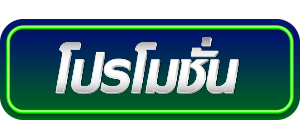In the world of digital design, Adobe Photoshop has long stood as a cornerstone tool for creatives. Its robust features and versatility make it a go-to application for graphic designers, photographers, and artists alike. However, many users have encountered difficulties when trying to crack the software, leading to frustration and confusion.
Over the years, Adobe has made significant strides in improving its security measures. These updates not only enhance user experience but also create barriers for those attempting to bypass licensing restrictions. As a result, the once-common methods for cracking Photoshop have become increasingly ineffective.
This article delves into the reasons behind these challenges, exploring the implications of software piracy, the evolution of Adobe’s anti-piracy technology, and the potential consequences of trying to use cracked software. Understanding these factors is crucial for anyone considering their options in the realm of digital design tools.
Understanding the Challenges of Cracking Photoshop
Cracking software like Photoshop has become increasingly difficult due to advancements in security measures and licensing technology. Adobe has implemented robust anti-piracy strategies that not only make it hard to bypass activation but also monitor usage patterns to identify unauthorized copies.
Technological Improvements
One of the primary challenges is the continual update of software to patch vulnerabilities. Each new version of Photoshop comes with improved encryption and obfuscation techniques, making previous cracking methods obsolete.
Legal and Ethical Considerations
Aside from technical barriers, there are significant legal and ethical implications. Software piracy is a violation of copyright law, which can result in severe penalties. Moreover, using cracked software can expose users to security risks, including malware and data theft.
| Challenges | Description |
|---|---|
| Security Updates | Frequent patches that fix vulnerabilities used in cracking. |
| License Verification | Robust methods to verify genuine licenses during software use. |
| Legal Risks | Potential fines and penalties associated with software piracy. |
| Malware Risks | Increased risk of downloading harmful software from unofficial sources. |
Recent Changes in Adobe Software Security
Adobe has significantly enhanced its software security measures in recent years, making it increasingly difficult for users to bypass licensing and activation protocols. These changes are part of Adobe’s ongoing efforts to protect its intellectual property and ensure that users are accessing legitimate versions of its software.
Introduction of New Licensing Mechanisms
One of the most notable updates is the introduction of more robust licensing mechanisms, which require users to validate their software through online activation. This system not only checks the validity of the license key but also ties the software to the user’s Adobe account, making it harder to share or distribute cracked versions.
Regular Security Updates
In addition to new licensing protocols, Adobe has been rolling out regular security updates that patch vulnerabilities often exploited by crackers. This proactive approach has resulted in a cat-and-mouse game, where each update effectively nullifies many existing cracks. Users seeking alternatives may find links like download adobe photoshop 2017 crack, but these solutions are increasingly unreliable and risky.
Common Reasons for Failed Software Cracks
Many users encounter difficulties when attempting to crack software like Photoshop. Understanding the common reasons behind these failures can help troubleshoot the issues more effectively.
1. Software Updates
One of the most common reasons for failed cracks is software updates. Developers frequently release patches that enhance security and functionality. These updates can render previous cracks ineffective by altering the software’s core files.
2. Antivirus and Security Software
Many antivirus programs and security suites actively scan for and block cracked software. They may quarantine or delete necessary files, preventing the crack from functioning. It’s crucial to temporarily disable these protections when attempting to crack software.
In summary, staying aware of software updates and the impact of security measures can help users better navigate the challenges of software cracking. However, always consider the legal and ethical implications of using cracked software.
Impact of Frequent Software Updates on Cracking
Frequent software updates play a significant role in the ongoing battle between software developers and those attempting to crack their programs. As companies like Adobe release regular updates for Photoshop, they aim to enhance security, add features, and fix vulnerabilities. This dynamic has various implications for cracking efforts.
Challenges Introduced by Updates
- Increased Complexity: Each update often introduces new code, making it harder for crackers to identify vulnerabilities.
- Improved Security Measures: Developers frequently implement stronger encryption and anti-tamper technologies.
- Patch Existing Cracks: Updates can quickly render previously successful cracks ineffective, requiring crackers to start from scratch.
Cracker Adaptation Strategies
- Reverse Engineering: Crackers must continually analyze new versions to find new weaknesses.
- Community Collaboration: Many rely on forums and communities to share knowledge and techniques.
- Automation Tools: Some utilize scripts and bots to streamline the cracking process after updates.
Ultimately, the rapid pace of updates creates an ongoing cycle where both developers and crackers must adapt, leading to an arms race that impacts the availability of cracked software.
Legal Consequences of Using Cracked Software
Using cracked software, such as Photoshop, poses significant legal risks. Engaging in this practice not only infringes copyright laws but can also lead to severe penalties. Below are some of the primary legal consequences associated with using cracked software.
Potential Legal Actions
Individuals or organizations caught using cracked software may face various legal actions, including:
| Legal Action | Description |
|---|---|
| Cease and Desist Orders | Copyright holders may issue orders requiring users to stop using the software. |
| Fines | Users may incur financial penalties, which can vary based on the severity of the infringement. |
| Lawsuits | Copyright owners may pursue legal action, potentially resulting in substantial damages awarded to them. |
| Criminal Charges | In severe cases, users may face criminal charges, which can lead to imprisonment. |
Impact on Users
The implications of using cracked software extend beyond legal troubles. Users risk exposure to malware, lack of support, and software instability. Ultimately, these factors can lead to significant financial and reputational damage.
Exploring Alternatives to Cracked Photoshop
As more users seek ethical and legal alternatives to cracked versions of Photoshop, various software options have emerged. These alternatives not only provide robust features but also ensure a safer user experience. Below is a comparison of popular alternatives:
| Software | Key Features | Price |
|---|---|---|
| GIMP | Open-source, customizable, supports various file formats, extensive plugins. | Free |
| Affinity Photo | Professional editing tools, one-time purchase, no subscription. | $54.99 |
| Paint.NET | Simple interface, supports layers and effects, active community. | Free |
| Canva | User-friendly design templates, online collaboration, cloud-based. | Free with paid options |
| Corel PaintShop Pro | Comprehensive editing tools, HDR support, batch processing. | $79.99 |
Choosing the right alternative depends on individual needs, whether it’s powerful editing capabilities or ease of use. These options present a viable path for creatives looking to avoid the risks associated with cracked software.
Best Practices for Using Legitimate Software
Using legitimate software not only ensures compliance with laws but also enhances your overall experience. Here are some best practices to follow:
- Purchase from Official Sources: Always buy software from the developer’s website or authorized resellers to avoid counterfeit products.
- Keep Software Updated: Regularly check for updates to ensure you have the latest features and security patches.
- Utilize Trial Versions: Before committing to a purchase, take advantage of free trials to assess if the software meets your needs.
Additionally, consider the following:
- Read Reviews and Tutorials: Investigate user reviews and tutorials to better understand the software’s capabilities and limitations.
- Join User Communities: Engage with forums and communities for support, tips, and shared experiences with the software.
- Maintain Your License: Keep track of your software licenses and renew them as necessary to avoid service interruptions.
By adhering to these best practices, you can make the most out of your legitimate software while ensuring security and efficiency in your work.
FAQ
Why can’t I find a working crack for Photoshop anymore?
There are several reasons why finding a working crack for Photoshop has become increasingly difficult. First, Adobe has significantly improved its security measures to detect and disable unauthorized copies of its software. This means that even if you find a crack, it might not work due to the latest updates or patches. Additionally, many online sources for cracks are unreliable or have been taken down due to legal issues, making it harder to locate a functioning version. It’s also worth noting that using cracked software is illegal and can lead to various risks, including malware infections.
What alternatives are available if I can’t crack Photoshop?
If you are unable to crack Photoshop, there are numerous alternatives that you can consider. Programs like GIMP and Krita offer powerful image editing tools for free and are widely used by both amateur and professional designers. Affinity Photo is a one-time purchase alternative that offers a similar feature set to Photoshop without a subscription model. Additionally, Adobe offers a subscription plan for Photoshop that might be more affordable than you think, especially for students and educators. Exploring these options can provide you with the functionality you need without the legal and ethical concerns of using cracked software.
Why does Adobe keep changing its software to prevent cracking?
Adobe continuously updates its software to prevent cracking primarily to protect its intellectual property and maintain revenue from its products. Frequent updates not only enhance security but also improve user experience and add new features. By making it more challenging to use cracked versions, Adobe encourages users to purchase legitimate licenses, which helps fund ongoing development and support. Furthermore, preventing piracy also helps protect the broader creative community by ensuring that creators can receive fair compensation for their work.
Are there any risks associated with using cracked versions of Photoshop?
Yes, using cracked versions of Photoshop comes with significant risks. First and foremost, it is illegal and can lead to legal repercussions. Beyond legal issues, cracked software often contains malware or viruses that can compromise your computer’s security, steal personal information, or corrupt files. Additionally, cracked versions may not receive updates or support, leaving you vulnerable to bugs and performance issues. Lastly, using unlicensed software can harm your reputation as a professional, especially in industries where credibility and ethics are paramount.
What can I do if I’m frustrated about not being able to crack Photoshop anymore?
If you’re feeling frustrated about not being able to crack Photoshop anymore, it’s worth considering a few productive steps. First, evaluate your needs—do you require all the features of Photoshop, or can you get by with a simpler program? Exploring free or lower-cost alternatives might be a good solution. If you decide that Photoshop is essential for your work, consider investing in a subscription or looking for discounts that Adobe offers regularly. Lastly, you could also explore community forums or online courses to enhance your skills with alternative software, which could open up new creative avenues for you.






